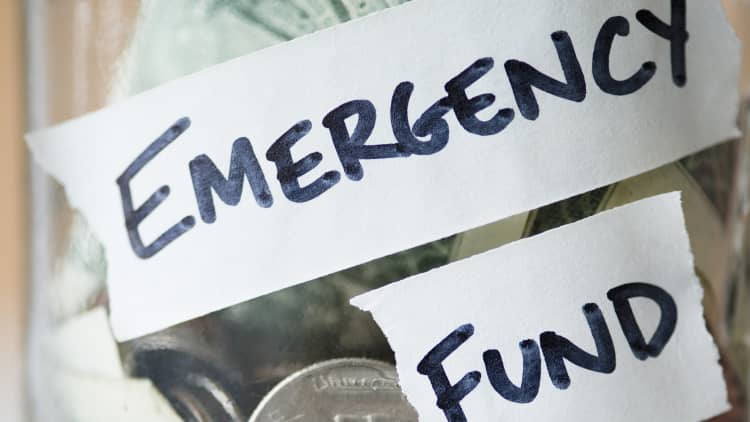
It's understandable if you are still reeling postelection.
Earlier this week, financial markets tumbled worldwide — and then rebounded to all-time highs in some cases — in response to the news that Donald Trump had just won the 2016 U.S. presidential election.
One good way to calm the queasiness following this market volatility is to generously pad that rainy day fund you've likely been ignoring.
"In the world we live in today, anything can happen," said Drew Horter, founder and chief investment officer at Horter Investment Management in Cincinnati. "We're at a high end of the stock market and the low end of interest rates," he said. "People need to take a hard look at the positioning of their assets."
Still, many Americans are woefully ill-prepared for any unplanned event, so much so that 66 million U.S. adults have zero dollars saved for an emergency, according to a recent Bankrate.com study.
Nearly half of all Americans said they either could not afford an emergency expense of $400 or would cover it by selling something or borrowing money, according to a separate report by the Federal Reserve.
Yet in 2015, consumers spent an average $55,978 per household, according to the Bureau of Labor Statistics' most recent consumer expenditure survey. That means they are shelling out more than $4,600 a month on expenses such as food, housing and health care. In other words, they're spending more in one week than most people could cover with their emergency savings.
In the world we live in today, anything can happen.Drew Horterfounder and chief investment officer at Horter Investment Management
Scott Tucker, president and founder of Scott Tucker Solutions in Chicago, recommends having enough cash to cover three to six months of living expenses in an emergency fund, which includes rent or mortgage payments (including property taxes and insurance), utility bills, transportation costs and food.
To that end, he suggests auto-withdrawing 10 percent of every paycheck into a separate account such as a Roth IRA. "If it's in a Roth IRA, there's less incentive to touch it but they could still withdraw early without [having to pay a] penalty or taxes," he said.
Horter advises having a minimum of six and preferably 12 months in a money market account or laddered CDs to cover monthly expenditures in the case of a job loss or illness.
If possible, set excess money aside, rather than cut back, he said. "Look at take home pay versus expenses. If the difference is $300, put that money away," he said. "You have to be able to live, but you also have to be able to save."
"You don't want to wind up hating that money," he said.


